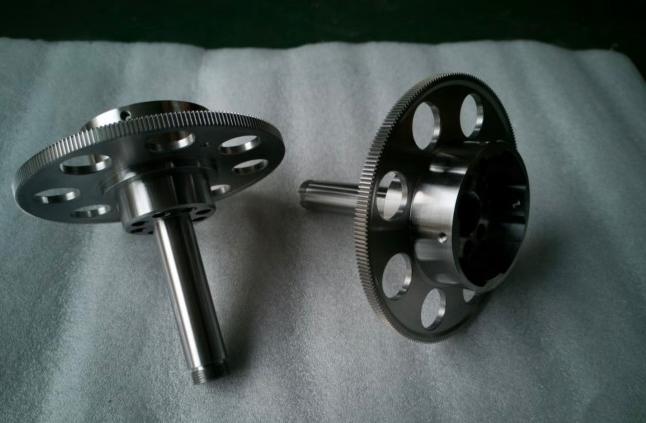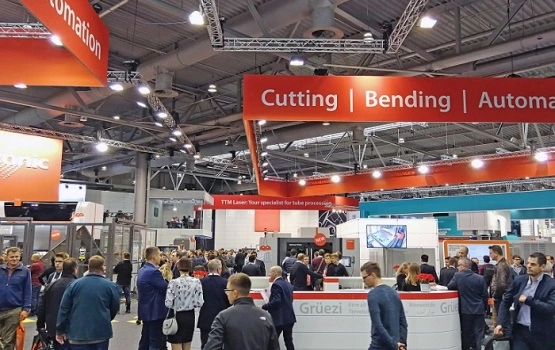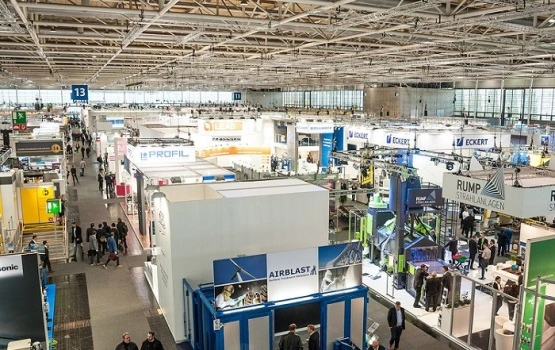Tel: +86-17791247851
E-mail: jocelyn.Tang@bycti.cn
Tel: +86-17791247851
E-mail: jocelyn.Tang@bycti.cn
Titanium machining parts refers to the processing of titanium or titanium alloy raw materials into parts with specific shape, size and performance requirements through various machining methods. These machining methods include cutting (e.g., turning, milling, drilling, etc.), forging, stamping, welding, surface treatment, and many other processes. Titanium machined parts cover a wide range of product types, from simple titanium bolts, titanium shafts, etc. to complex aerospace structural components, medical device parts, etc.

Titanium machined parts features:
1, excellent corrosion resistance
Titanium machined parts in the air or oxidizing media can quickly form a dense, stable oxide film (TiO₂), this layer of oxide film can prevent the corrosive medium from further contact with the titanium substrate, and play a self-protective role. It has good corrosion resistance to most organic acids, inorganic acids, alkalis and seawater. In the fields of chemical equipment and marine engineering, titanium machined parts can work stably for a long time, reducing the frequency of maintenance and replacement. For example, the titanium valve machined parts in the chemical pipeline system can resist the erosion of various corrosive media.
2, high strength and good toughness
Titanium processing parts have high strength, its tensile strength according to different titanium grades and processing technology can reach 300 - 1000MPa or more. At the same time, it also has good toughness, can withstand a certain degree of impact and deformation without rupture. This combination of strength and toughness makes titanium processing parts in the external force performance, for example, in the aerospace field of titanium alloy wing processing parts, to meet the strength and toughness requirements of the flight process.
3, good biocompatibility
Titanium machined parts have excellent biocompatibility, the human body on the titanium rejection reaction is very small. In the medical field, titanium machined parts can be used for the manufacture of artificial joints, dental implants, medical equipment shells, etc., can be closely combined with human tissue, and in the long-term use of the process will not cause serious inflammation and other adverse reactions.
4, high and low temperature resistance
Titanium has a high melting point (1668 ℃ or so), in a certain temperature range of titanium processing parts can maintain good performance. In a high-temperature environment, although its strength will decline as the temperature rises, but at relatively high temperatures (such as 300 - 400 ℃), still able to maintain a certain degree of structural integrity and strength, can be used for some of the medium-temperature environment, such as heat exchange systems. In low-temperature environments, titanium machined parts also show good performance, such as liquid natural gas (LNG) transmission and other low-temperature pipeline systems in the titanium pipe fittings machined parts, to avoid the phenomenon of cold embrittlement, to ensure the safe operation of the pipeline.
5, light weight
The density of titanium is about 4.51g/cm³, compared with other commonly used metal processing parts (such as iron processing parts, copper processing parts), titanium processing parts are lighter in weight. In aerospace, automotive and other fields of application, can effectively reduce the weight of the entire system, thereby improving energy efficiency or vehicle handling performance. For example, the titanium alloy landing gear machined parts for airplanes, its light weight helps to reduce the weight of the airplane and reduce fuel consumption.
This is the first one.


